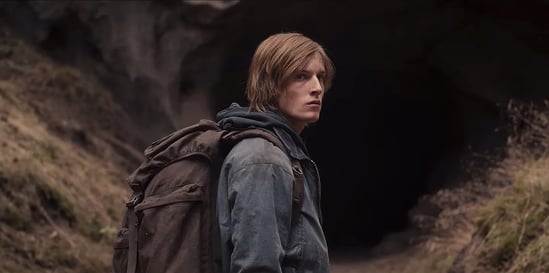Dark Season 2: A Deeper Descent into Time’s Abyss
Cinemapedia
The second season of Dark continues to unravel the mysteries of time, family, and fate, building upon the intricate foundation laid in its first season. Created by Baran bo Odar and Jantje Friese, Dark Season 2 delves even deeper into the complexities of its multi-generational narrative, expanding on the lives of its characters, their secrets, and their connections across different timelines. With its stunning visuals, emotionally charged story, haunting music, and philosophical reflections, Season 2 is a thrilling continuation of the series’ exploration of time’s cyclical nature.
A World Cloaked in Shadows and Paradoxes
The visual aesthetic of Dark Season 2 retains the chilling atmosphere that defined the first season. The muted tones of grays, greens, and blues continue to dominate the color palette, heightening the sense of mystery and foreboding. However, in Season 2, the visual language grows even more complex, as the series begins to incorporate more elements of paradoxes, such as the intertwining of past, present, and future in ways that visually mirror the show’s exploration of time loops.
The cinematography remains as meticulous as ever, with carefully framed shots that reflect the characters’ internal turmoil. The symmetry and use of visual motifs—such as the recurring presence of the black hole, the ominous nuclear power plant, and the clock—are designed to convey the inevitability of the cycle of time. The show also introduces more fantastical elements, such as the mysterious portal that serves as a gateway between different timelines, creating a visual spectacle that enhances the surreal and otherworldly aspects of the series.
The Entanglement of Fates and the Unraveling of Truths
Season 2 of Dark expands upon the labyrinthine narrative of the first season, deepening the exploration of its central themes—time travel, family, and the cyclical nature of existence. The story picks up right where Season 1 left off, with Jonas Kahnwald (Louis Hofmann) confronting his terrifying future as the older version of himself. The narrative takes us further into the intertwined fates of the families in Winden, revealing new secrets, betrayals, and unexpected connections.
As the series progresses, the timelines become even more complex, introducing new characters and perspectives that expand the scope of the story. We are introduced to the mysterious figure of the "stranger," who plays a pivotal role in the events of the future, and the enigmatic Noah, whose actions have far-reaching consequences. Meanwhile, the Winden families continue to struggle with the repercussions of their past actions, and the characters face the harsh reality that their lives are bound to a repeating cycle that they cannot escape.
The central question of the series—whether free will exists or if all actions are predestined—is explored in greater depth in Season 2. The characters’ attempts to break free from the cycle of time only seem to tighten their fates, further complicating their moral dilemmas. The season builds toward a thrilling climax, with shocking twists and revelations that keep viewers on the edge of their seats.
A Soundtrack of Tension and Tragedy
Ben Frost’s haunting score returns for Season 2, continuing to provide the atmospheric backbone of the series. The music is darker and more foreboding this time around, with an even greater emphasis on dissonant tones and eerie soundscapes. The score creates a sense of unease and urgency, amplifying the tension in the show’s most pivotal moments.
The music’s role in Dark is not just to heighten the suspense but also to mirror the emotional states of the characters. The mournful melodies and unsettling beats reflect the sorrow and existential dread that permeate the show. Additionally, the carefully chosen songs in Season 2—such as "Goodbye" by Apparat and "Irgendwie, Irgendwo, Irgendwann" by Nena—add another layer of meaning to the narrative, enhancing the emotional depth of key scenes.
Fate, Sacrifice, and the Struggle for Redemption
Season 2 of Dark continues to explore profound moral questions, especially regarding the nature of fate and free will. As the characters become more entangled in the web of time travel and interconnected destinies, they must confront the reality that their actions may be predestined. The moral struggle becomes more intense as they are forced to make impossible choices that affect not only their own lives but also the lives of those around them.
One of the most compelling moral dilemmas in Dark is the question of sacrifice. Many of the characters must decide whether to make personal sacrifices for the greater good or to protect their own interests. The show highlights the emotional cost of these decisions, emphasizing the complexity of human nature and the consequences of choices made in the pursuit of love, revenge, and redemption.
Another key moral theme in Season 2 is the idea of identity and the search for meaning. As the characters’ pasts, presents, and futures collide, they are forced to confront the reality that their identities may not be as fixed as they once thought. The question of whether it is possible to change one’s fate is central to the show’s exploration of time, and the characters’ struggles to redefine themselves in the face of overwhelming odds provide a poignant commentary on the human condition.


